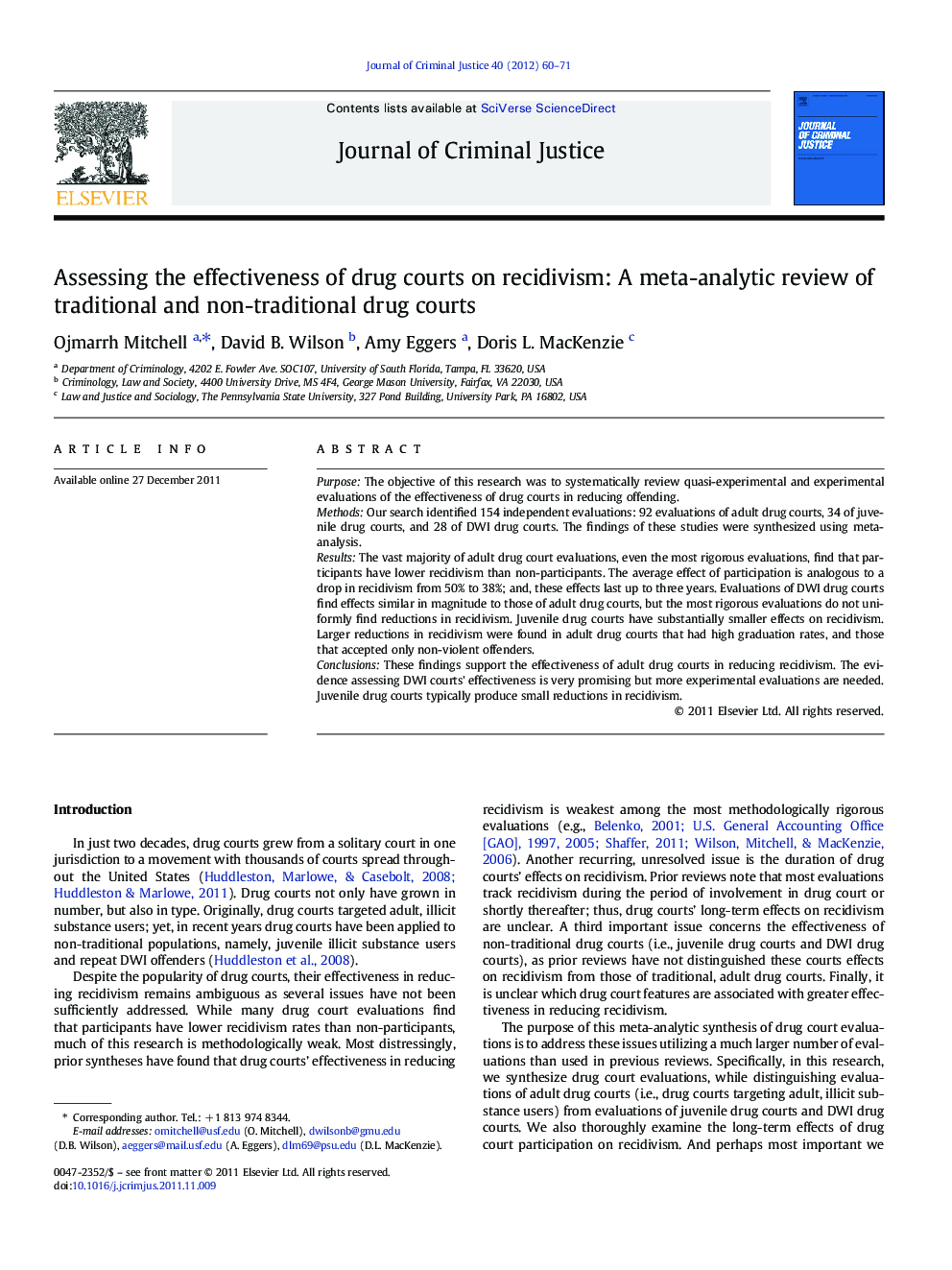| کد مقاله | کد نشریه | سال انتشار | مقاله انگلیسی | نسخه تمام متن |
|---|---|---|---|---|
| 882849 | 912029 | 2012 | 12 صفحه PDF | دانلود رایگان |

PurposeThe objective of this research was to systematically review quasi-experimental and experimental evaluations of the effectiveness of drug courts in reducing offending.MethodsOur search identified 154 independent evaluations: 92 evaluations of adult drug courts, 34 of juvenile drug courts, and 28 of DWI drug courts. The findings of these studies were synthesized using meta-analysis.ResultsThe vast majority of adult drug court evaluations, even the most rigorous evaluations, find that participants have lower recidivism than non-participants. The average effect of participation is analogous to a drop in recidivism from 50% to 38%; and, these effects last up to three years. Evaluations of DWI drug courts find effects similar in magnitude to those of adult drug courts, but the most rigorous evaluations do not uniformly find reductions in recidivism. Juvenile drug courts have substantially smaller effects on recidivism. Larger reductions in recidivism were found in adult drug courts that had high graduation rates, and those that accepted only non-violent offenders.ConclusionsThese findings support the effectiveness of adult drug courts in reducing recidivism. The evidence assessing DWI courts' effectiveness is very promising but more experimental evaluations are needed. Juvenile drug courts typically produce small reductions in recidivism.
► We meta-analytically synthesized the results of 154 drug court evaluations.
► This meta-analysis is the largest of its kind.
► Evaluations of adult and DWI drug courts reveal substantial reductions in recidivism.
► The mean effect of these courts is a 12-percentage point drop in recidivism.
► Evaluations of juvenile drug courts reveal much smaller reductions in recidivism.
Journal: Journal of Criminal Justice - Volume 40, Issue 1, January–February 2012, Pages 60–71